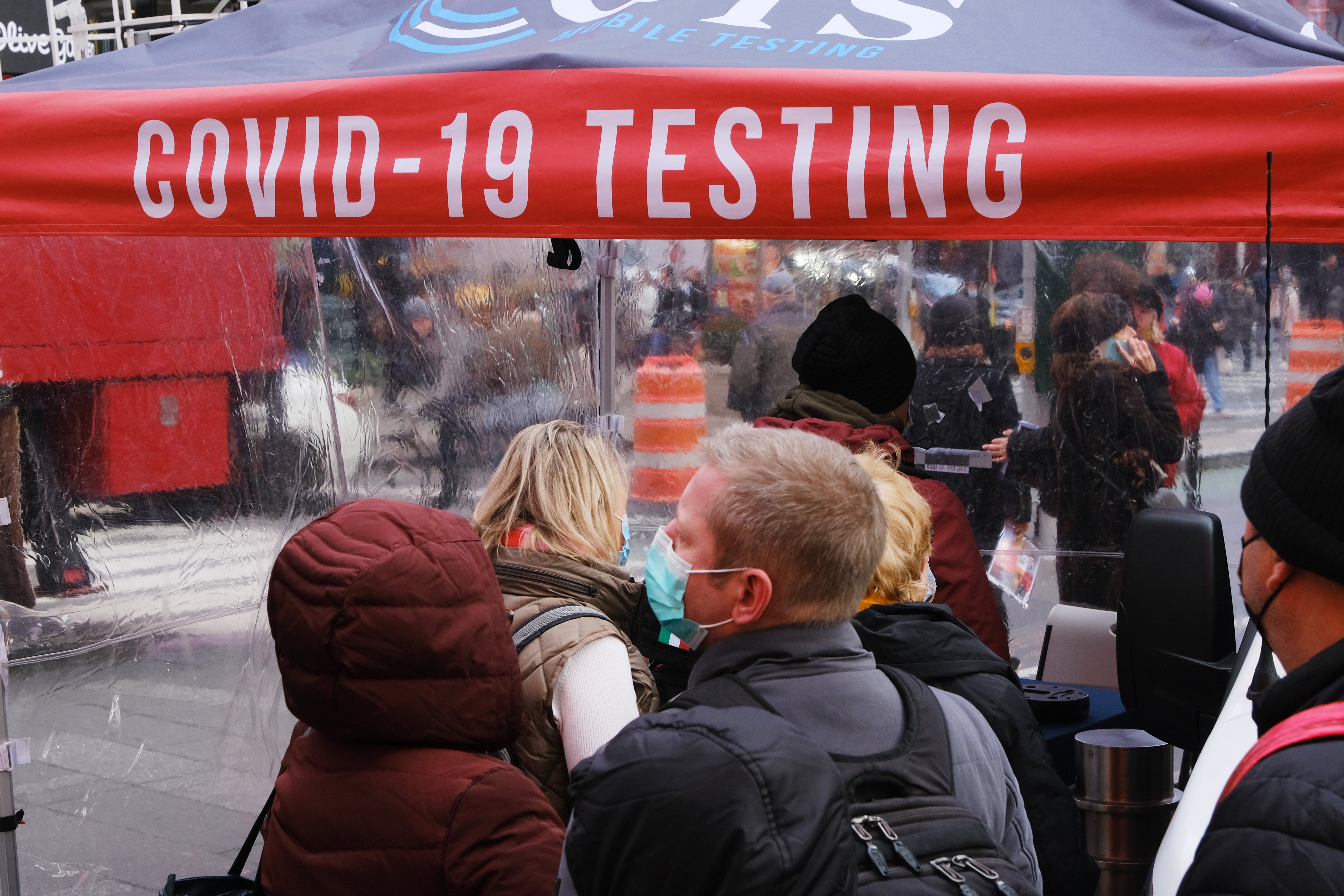Omicron spreads faster and weakens vaccine efficacy, WHO says
Omicron will likely outpace delta variant where community transmission occurs, UN health agency says

The new omicron coronavirus variant spreads faster and considerably reduces vaccine efficacy compared to the delta variant, but may cause less severe symptoms according to early data, the World Health Organisation said on Sunday.
Delta, first identified in India earlier this year, is currently the dominant variant of the novel coronavirus and is responsible for most of the world’s infections.
Scientists and health experts have, however, continued to raise concerns about omicron which has over 50 mutations compared to the delta variant, including 26-32 in the spike protein, which enables the virus to enter human cells.
As of 9 December, the WHO said this new variant, first discovered in South Africa last month, has been reported in over 63 countries across the globe with early data suggesting that it also spreads faster than the delta variant.
“It is spreading faster than the delta variant in South Africa where delta circulation was low, but also appears to spread more quickly than the delta variant in other countries where the incidence of delta is high, such as in the United Kingdom,” the UN health agency noted in a technical brief.
“Given the currently available data, it is likely that omicron will outpace the delta variant where community transmission occurs,” it added.
While there is limited data available on the effectiveness of current vaccines against this variant, the WHO said that there was a reduction in vaccine efficacy against infection and transmission associated with omicron, based on preliminary evidence.
The WHO cited early data and said the incidence of reinfection, which may be associated with antibody evasion, increased in South Africa.
Preliminary studies of small sample sizes also suggested that the sera obtained from vaccinated and previously infected individuals had lower neutralisation activity compared to other circulating variants of concern and the ancestral strain of the novel coronavirus from Wuhan, China, the WHO noted.
Early data also revealed omicron may be less severe than the delta variant, but it remains unclear to what extent it may be inherently less virulent.
The WHO also noted that the diagnostic accuracy of routinely used PCR and antigen-based rapid diagnostic tests (Ag-RDT) do not appear to be influenced by the omicron variant.
While therapeutic interventions for the management of omicron-infected severe Covid patients are expected to remain effective as they did for the delta variant, the WHO said monoclonal antibodies will need to be tested individually for their antigen binding and virus neutralisation activities, adding that these studies should be prioritised.
“Efforts to accelerate Covid-19 vaccination coverage as rapidly as possible should continue, particularly among populations designated as high-priority who remain unvaccinated or are not yet fully vaccinated,” the report noted.
Subscribe to Independent Premium to bookmark this article
Want to bookmark your favourite articles and stories to read or reference later? Start your Independent Premium subscription today.

Join our commenting forum
Join thought-provoking conversations, follow other Independent readers and see their replies